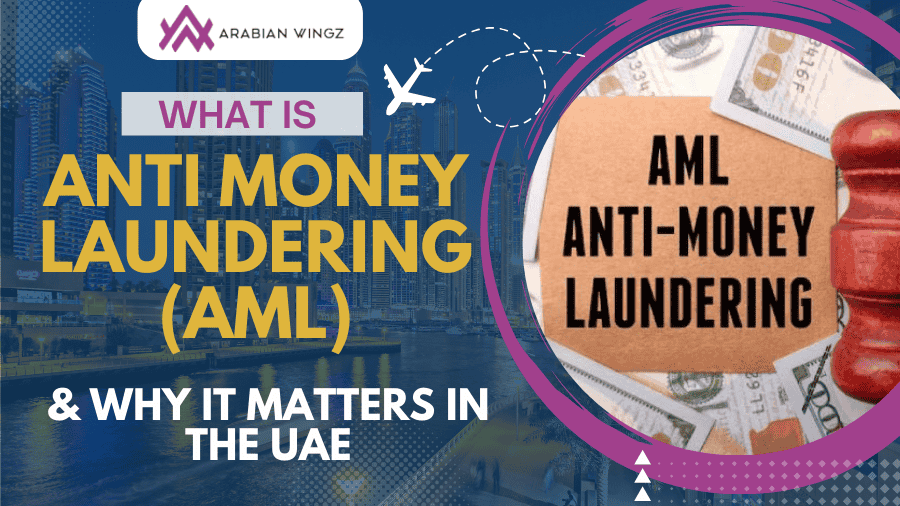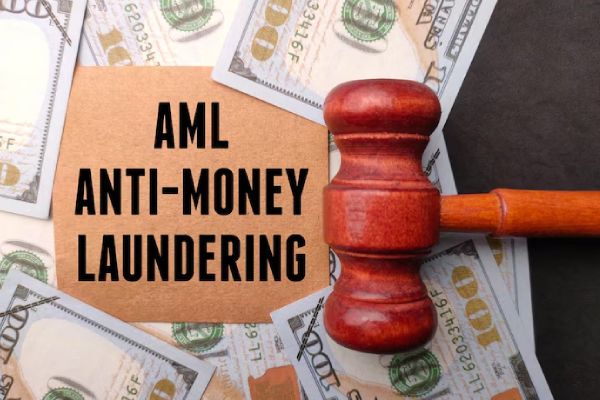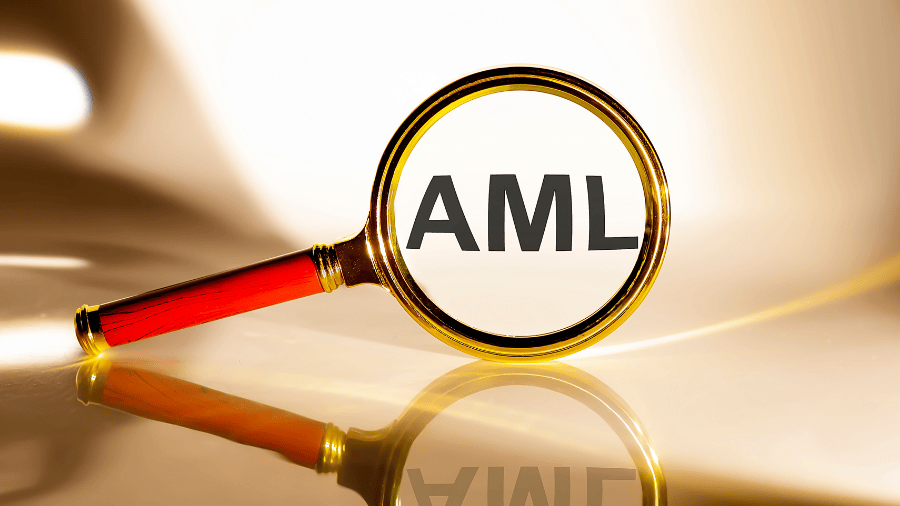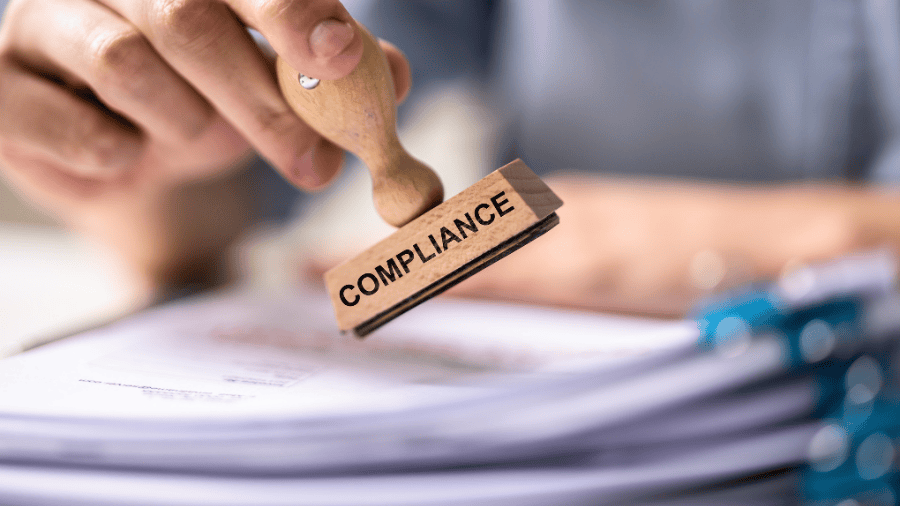
FTA announces Corporate Tax Registration Deadline – 90 days from Date of Incorporation/MOA. AED 10k penalty for late registration.

The fight against financial crime has never been more crucial in a world economy that is becoming more interconnected by the day. As a significant center for global trade, finance, and tourism, the United Arab Emirates (UAE) understands the importance of strong anti-money laundering regulations in protecting its reputation and financial stability.
This blog examines Anti Money Laundering (AML) in the United Arab Emirates, covering its definition, importance, regulatory environment, and the vital role that AML compliance UAE plays for companies in all industries.
We will also discuss how AML requirements and VAT services in Dubai interact, and we will wrap up by emphasizing how Arabian Wingz can support your company in navigating this challenging environment.

The laws, rules, and practices known as anti-money laundering (AML) are intended to stop criminals from passing off funds obtained illegally as legitimate income. Three steps are usually involved in money laundering –
1. Placement – Putting money obtained illegally into the banking system.
2. Layering – Layering is the process of carrying out several transactions to hide the source of the funds.
3. Integration – Reintroducing the laundered funds as “clean” assets into the economy is known as integration.
AML frameworks around the world require financial institutions and other regulated organizations to put in place mechanisms for identifying, disclosing, and stopping suspicious activity.
Cross-border cooperation and enforcement are ensured by the AML UAE laws, which are in line with international standards established by organizations like the Financial Action Task Force (FATF).

Important foreign investment and capital flows are drawn to the UAE by its advantageous location, cutting-edge infrastructure, and business-friendly atmosphere. Although these advantages promote economic expansion, they also raise the possibility of vulnerabilities –
1. Financial Hub Risk – There is a greater chance of illegal cross-border fund transfers because the UAE employs and serves more than 200 different nationalities.
2. Trade-based Vulnerabilities – The UAE’s busy ports and free zones allow for large trade volumes, which criminals can take advantage of by using shell companies and over- or under-invoicing.
Contact Us For AML Services in UAE
3. Reputation and Compliance – Sanctions, harm to one’s reputation, and a decline in investor confidence may arise from a failure to maintain AML compliance UAE standards.
The UAE safeguards its financial industry, encourages transparency, and upholds its reputation as a reliable international business hub by implementing strict AML regulations.

The financial and non-financial sectors are both covered by UAE regulations. The following organizations are needed to keep up AML UAE programs –
1. Banks and Financial Institutions – Customer due diligence (CDD) and transaction monitoring are mandatory for all banks, finance companies, and money exchange businesses.
2. Insurance Companies – Concerning life insurance and other financial products.
3. Real Estate Brokers and Developers – Layering and integration of real estate transactions are extremely risky.
4. Dealers in Precious Metals and Gems – Because of their high value, jewelry and gold trading need careful attention.
5. Trusts and Company Service Providers – In order to guard against abuse, organizations that create trusts or companies must screen their clients.
6. Auditors, Accountants, and Tax Consultants – Accountants, auditors, and tax consultants—including those providing VAT services in Dubai—handle private financial information and provide transaction structure advice.
A unified defense against financial crime is facilitated by ensuring compliance across these sectors.

The following essential components are usually found in a strong AML compliance UAE program –
1. Evaluation of Risk – To find possible AML vulnerabilities, organizations need to perform thorough risk assessments. This entails assessing product offerings, delivery channels, geographic exposures, and customer profiles.
2. Customer Due Diligence (CDD) and Enhanced Due Diligence (EDD) – CDD calls for understanding the nature of the business relationship and confirming the customer’s identity with trustworthy documents (passport, Emirates ID).
EDD requires a more thorough examination, including confirming the source of funds, and is applicable to high-risk clients (politically exposed individuals, cross-border clients).
3. Tracking and Reporting Transactions – Unusual transaction patterns, such as large cash deposits, quick fund transfers, or wire routing through high-risk jurisdictions, should be flagged by automated systems. When thresholds or red flags are reached, the Financial Intelligence Unit (FIU) of the United Arab Emirates must receive suspicious activity reports (SARs).
4. Record‑Keeping – According to regulations set forth by the Securities and Commodities Authority (SCA) and the UAE Central Bank, record-keeping entities are required to keep customer identification documents, transaction records, and due diligence files for a minimum of five years.
5. Awareness and Training – Frequent, role-specific training guarantees that front-line employees are aware of money laundering signs and their reporting responsibilities.
6. Independent Evaluation and Audit – Regular internal or external audits evaluate the AML program’s efficacy, spot weaknesses, and suggest fixes.

Serious repercussions may result from breaking Anti Money Laundering UAE laws –
1. Financial Penalties – Depending on the seriousness and frequency of the infraction, fines can range from hundreds of thousands to millions of dirhams.
2. License Revocation or Suspension – Regulators have the power to completely stop operations by suspending banking, trading, or professional licenses.
3. Criminal Liability – Willful misconduct or negligence may result in imprisonment for compliance heads and senior officers.
4. Reputational Damage – Well-publicized enforcement actions discourage foreign partners and erode consumer trust.
The significance of a proactive AML compliance UAE strategy is highlighted by such penalties.

It takes specific knowledge to navigate the nuances of Anti Money Laundering UAE laws. Leading provider of business compliance services, Arabian Wingz provides end-to-end assistance –
1. Customized Risk Assessments – Made specifically for your sector, these assessments guarantee accurate threat identification and mitigation measures.
2. Policy and Procedure Development – Creating transaction monitoring matrices, CDD protocols, and AML policies that comply with SCA and UAE Central Bank regulations.
3. Training Programs – Engaging workshops that promote a culture of compliance and alertness for employees at all levels.
4. Regulatory Liaison – Overseeing the FIU’s submission of Suspicious Activity Reports and arranging inspections with regulatory agencies.
5. Combined VAT Services in Dubai – Arabian Wingz, a reputable VAT consultant, makes sure that your indirect tax procedures minimize duplication and overlap by integrating seamlessly with AML regulations.
Organizations that work with Arabian Wingz receive a strong, legal framework that reduces regulatory risks and protects their brand.
Upholding the highest standards of AML compliance UAE is essential as solidifies its standing as a leading international business hub. In addition to guarding against financial crime, successful anti-money laundering initiatives in the UAE also maintain investor confidence and market integrity.
Every element is essential, from thorough risk assessments to employee training and regulatory reporting. Companies in the banking, real estate, professional, and even VAT services sectors in Dubai need to take these responsibilities seriously.
Working with professionals like Arabian Wingz is the most obvious way to create a robust, future-proof AML framework given the harsh penalties for non-compliance and changing regulatory expectations. Invest in compliance now to protect your company’s image, guarantee legal compliance, and support the vibrant, open financial sector in the United Arab Emirates.





